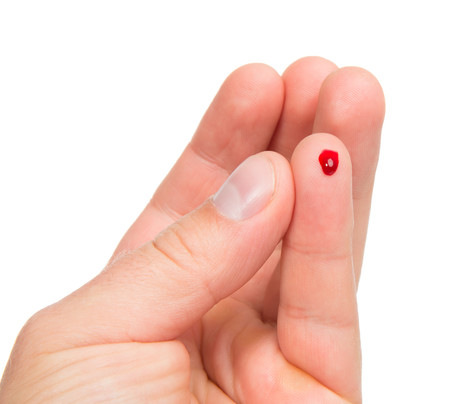Diabetes increases cancer risk — especially for women

Women with diabetes are significantly more likely to develop cancer than their male counterparts.
A global review involving almost 20 million people has shown that having diabetes greatly increases the risk of developing cancer, particularly for women.
Researchers from The George Institute for Global Health also found diabetes (type 1 and type 2) conferred an additional risk for women, compared to men, for leukaemia and cancers of the stomach, mouth and kidney, but less risk for liver cancer.
The findings, published in Diabetologia, highlight the need for more research into the role diabetes plays in developing cancer. They also demonstrate the increasing importance of sex-specific research.
Diabetes affects more than 415 million people worldwide, with five million deaths every year. In Australia, it’s the fastest growing chronic condition with 280 people developing the disease every single day.
It is believed that heightened blood glucose may have cancer-causing effects by leading to DNA damage.
Research co-author Dr Sanne Peters, of The George Institute for Global Health, said there were several possible reasons why women were subject to an excess risk of cancer including that they are in the pre-diabetic state of impaired glucose tolerance two years longer on average than men.
“Historically we know that women are often undertreated when they first present with symptoms of diabetes, are less likely to receive intensive care and are not taking the same levels of medications as men.
“The differences we found are not insignificant and need addressing. The more we look into gender-specific research the more we are discovering that women are not only undertreated, they also have very different risk factors for a whole host of diseases, including stroke, heart disease and now diabetes,” Dr Peters said.
Key findings:
- Women with diabetes were 27% more likely to develop cancer than women without diabetes. For men the risk was 19% higher.
- Researchers also found that diabetes was a risk factor for the majority of cancers of specific parts of the body for both men and women.
- Overall, it was calculated that women with diabetes were 6% more likely overall to develop any form of cancer than men with diabetes.
- There were significantly higher risks for women with diabetes for developing cancer of the kidney (11% higher), oral cancer (13% higher), stomach cancer (14% higher) and leukaemia (15% higher) compared to men with the condition.
- For liver cancer, the risk was 12% lower for women with diabetes compared to men with diabetes.
Lead author Dr Toshiaki Ohkuma, research fellow with The George Institute for Global Health, said: “The link between diabetes and the risk of developing cancer is now firmly established. We have also demonstrated for the first time that women with diabetes are more likely to develop any form of cancer, and have a significantly higher chance of developing kidney, oral and stomach cancers and leukaemia.
“The number of people with diabetes has doubled globally in the last 30 years, but we still have much to learn about the condition. It’s vital that we undertake more research into discovering what is driving this, and for both people with diabetes and the medical community to be aware of the heightened cancer risk for women and men with diabetes.”
The authors analysed data from 47 studies from countries including the USA, Japan, Australia, China and the UK.
$1bn vaccine and antivenom manufacturing facility opens
A $1 billion cell-based influenza vaccine and antivenom manufacturing facility has opened in...
National concussion clinical guidelines now available
The first Australia- and New Zealand-specific guidelines for all forms of concussion — from...
Doctors criticise "risky prescribing agenda"
The AMA and RACGP have expressed disappointment in the Pharmacy Board of Australia's...


![[New Zealand] Transform from Security Awareness to a Security Culture: A Vital Shift for SMB Healthcare — Webinar](https://d1v1e13ebw3o15.cloudfront.net/data/89856/wfmedia_thumb/..jpg)
![[Australia] Transform from Security Awareness to a Security Culture: A Vital Shift for SMB Healthcare — Webinar](https://d1v1e13ebw3o15.cloudfront.net/data/89855/wfmedia_thumb/..jpg)




